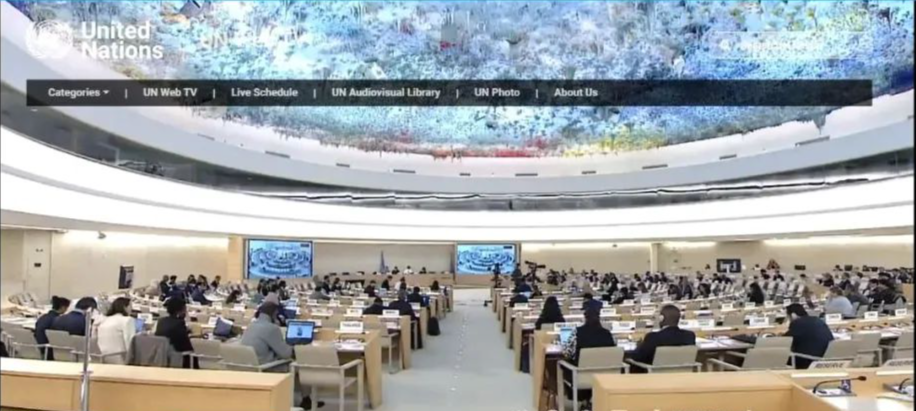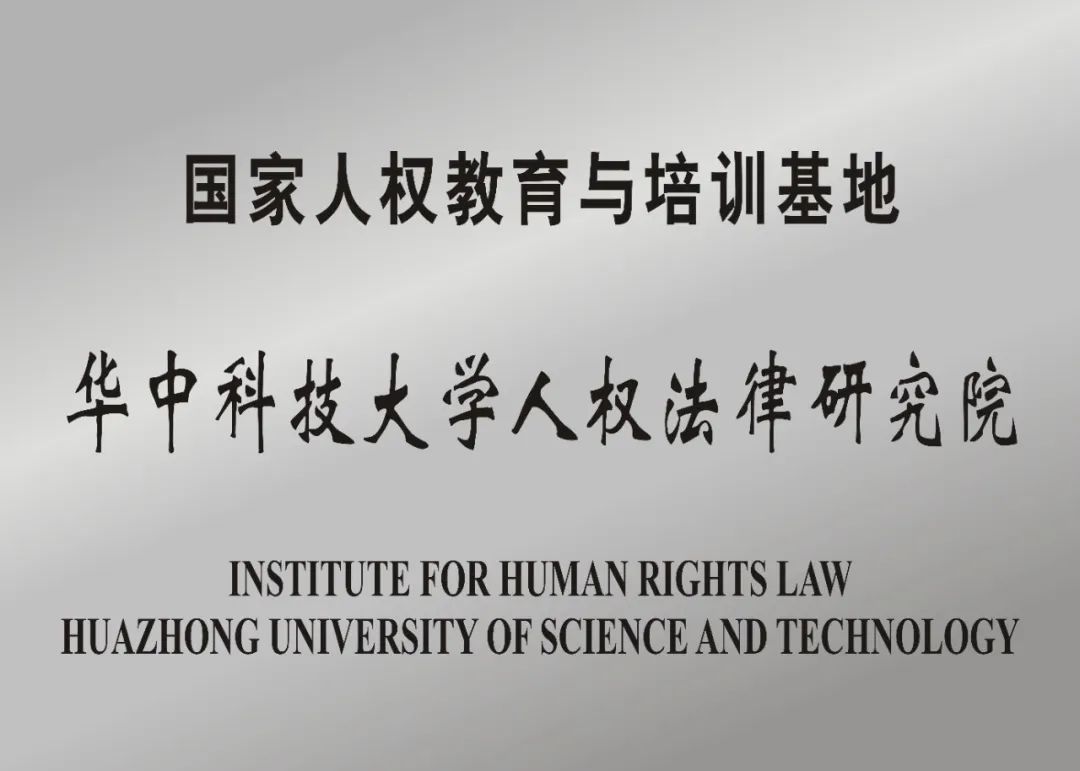The 51st session of the United Nations Human Rights Council was held in Geneva, Switzerland from Sep 7th to Oct 22nd. On Oct 6th, Wang Wenjing, a doctoral candidate from the School of Law and Institute for Human Rights Law of HUST, attended the meeting on behalf of the China Society for Human Rights Studies and delivered a video speech themed “Technical Assistance and Capacity Building”.

Here follows Wang’s speech:
Dear President, I’m Wang Wenjing from Huazhong University of Science and Technology, speaking on behalf of the China Society for Human Rights Studies.
Since the founding of the People's Republic of China, it has always been committed to providing technical assistance and capacity building to developing countries and regions without attaching any political conditions, enhancing their capacity to pursue independent development, and raising the standard of living for their citizens.
Today, China has completed thousands of assistance projects for more than 160 countries, carried out tens of thousands of technical cooperation and human resources development projects, and trained more than 400,000 technicians of various types. China has been actively enhancing cooperation in research and teaching institutions between China and Africa. Over the past two decades, the number of African students who studied in China has increased by nearly 60 times. China's technical assistance has fulfilled the important commitments made by President Xi Jinping, which constitutes one of the most crucial cornerstones in the contemporary international protection of human rights.
Thank you.

The Institute for Human Rights Law of HUST(HUST-IHRL) is a human rights law research platform. It aims to promote human rights research and implement strategies that follow the human rights development path with Chinese characteristics and strengthen legal protection for human rights. The institute is devoted to establishing a leading, specialized, and distinctive international institute for human rights law through the improvement of the management system, academic teams, and collaborations at home and abroad. Professor Xu Xiaodong, vice president of HUST serves as the chairman of the institute, and professor Wang Xigen serves as the president.
In human rights law research, policy suggestions, education and training, and international cooperation, HUST-IHRL has developed distinctive features and made great achievements that demonstrate its strong academic strength and advantages. In December 2020, HUST-IHRL was approved as a “national human rights education and training base”.
Written by: Yang Xiyan
Edited by: Zhang Zhanyu, Peng Yumeng
Source: School of Law
